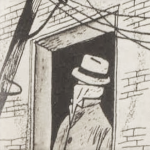|
Splicer posted:I love loft spaces. They're like a tree house inside your house house Yeah lofts rule. I HATE their inferior cousin, the upstairs hallway balcony that goes nowhere but directly to all the rooms, so that you can literally take in the ambience of every bedroom and bathroom door from the den, just inside the front door of my in-laws house.
|
|
|
|

|
| # ? Jun 5, 2024 12:05 |
|
Buy this book: Housebuilding: A Do-It-Yourself Guide https://m.barnesandnoble.com/w/housebuilding-r-j-decristoforo/1111743086
|
|
|
|
Thanks! I will!
|
|
|
|
Javid posted:For starters, I know to dimension things to take advantage of the lengths lumber is sold in for maximum efficiency, and I'm hoping to keep it simple and cubic with no bullshit. Pretty much a 16x24 box with a single slanted roof on it, angled such as the local snow load and etc dictate, probably facing South so the place isn't an oven in the summer. I know I can do poo poo like put all the plumbing along one edge of the building to greatly simplify the work. Certain things I'm fine with just paying somebody to figure out and handle, such as the foundation. And drywall, Jesus Christ gently caress doing drywall. Are there any other efficiency tricks like that I should build into the plan? Am I even chasing the right pennies here? My suggestion would be to get down on paper your ideal home ignoring the practicalities of building and then tweak and adjust based on those sorts of considerations of efficiency and so on. There's no point fine tuning something before you've really decided you want it. After that, if it were me, to take your plumbing example as an example, I would find the person who I wanted to actually do the work (assuming it wasn't me) and show them the plans, being clear that you're looking for their expertise on ways to make it more efficient. They will know straight away how to best achieve what you're going for and nobody in any trade wants to do things the hard way. I found with my place that there's a thousand little things that you don't know about yet that affect how to best lay things out and that comes from expertise. Again you can get some or all of that stuff from books but personally I'd prefer e.g. plumbing laid out the way the plumber doing the job things is best rather than a book (assuming you've found a good plumber). Definitely read up as much as you can, but it's a path of least resistance thing. Honestly at this point I feel confident I could project manage a house build from scratch but it took several years living through a full gut renovation for that to be the case. And even then I'd be leaning on the expertise of pros when it comes down to the sort of details you're talking about. For anything you do yourself, well, I can't speak for you specifically but it took me 3 goes at anything before I was able to properly grok it.
|
|
|
|
Javid posted:Say I'm pretty handy and want to tackle building myself a tiny house. I want to know everything I need to know to not gently caress it up and end up in this thread. Where should I start reading? I tried the local building codes and they read like incomprehensible lawyerese. Does anyone translate these into normal English or anything? Other option is to just do it and ask for forgiveness-in my locality the penalty for building without a permit is twice what the permit would have cost, so like $100. But you probably won't be able to get a mortgage/insurance or sell the house. All those "Home wiring for dummies" books at the library are a good place to start for most trades, but you will do everything much more slowly, and possibly more expensively, than a tradesperson who does it every day will. Framing is easy, trim is easy, drywall is easy, plumbing is not super hard but I'd rather hire someone to do it right as it's a big mess when it goes wrong. Same with electrical except your house is on fire now. You can usually work with contractors by doing the grunt work (pulling all the wire) yourself and then hiring them to just hook everything up properly, and this will probably make the building inspector much happier too. Which is all to say, get yourself some graph paper and start sketching.
|
|
|
|
Kaiser Schnitzel posted:Assuming you're building somewhere where you need a permit etc. first thing would be to check with your local building inspection dept about what you are allowed to do yourself. They may be able to help you decipher code. Some jurisdictions say as long as you do it to code and it passes inspection, it doesn't matter who does it, but a lot of places require licensed/bonded contractors to do the plumbing and electrical. To issue a permit, they will probably also require a plan/drawing, which probably will have to be stamped by an architect/structural engineer. In my experience, some people at the inspection dept. are super nice and helpful and will tell you exactly what you need to do and how to do it and why to do it, and some will look at the plans, not say anything, and then a week later tell you everything is wrong and why didn't you check with them first? I agree 100% with everything in this post, with only some regional differences for me, i.e. we have our "can I legally build this" and "how can I legally build this" departments and signoffs being separate processes, and while "retroactive planning permission" is a legit thing, here if they say no you have to redo it until they say yes. I also especially agree with this: Kaiser Schnitzel posted:plumbing is not super hard but I'd rather hire someone to do it right as it's a big mess when it goes wrong. Same with electrical except your house is on fire now. Kaiser Schnitzel posted:You can usually work with contractors by doing the grunt work (pulling all the wire) yourself and then hiring them to just hook everything up properly
|
|
|
|
Buy an RV or camping trailer instead.
|
|
|
|
I built a 16x24 workshop in my back yard, and there's a corresponding forums thread that has a ton of advice and feedback from knowledgeable goons. I handled all of the construction except for pouring the concrete slab foundation, and connecting the power run to the main panel (the workshop has a sub-panel). In other words I drew up plans, got them permitted, did the framing, sheathing, flashing, siding, painting, roof, and electricity, and ran water to the outside (the structure has no sewage line, so I didn't see any point in installing interior water supply). Prior to taking on this project, I had done some small carpentry projects and a few home improvement things, like building shelves, installing new floors, and painting. That's not a lot of experience, frankly. It took me around about 8-9 months to finish up the exterior of the structure, but I was only working 1 day a week, and worked very inefficiently as well. My main advice would be to actually read the building code for your area. It's a bit dense, but it's not an impenetrable mess of legalize; you'll just need to look up jargon from time to time. The building code defines a standard method of constructing homes that does not require a structural engineer to sign off on your plans -- you just show them to the planning board and assuming the plans are actually to code, they'll approve them. However, it limits your options in terms of how you can build your home. For example, around here there's no provisions for doing a vaulted roof, where the ridge beam is load-bearing and there are no roof joists. So if you want that, then you need a structural engineer to sign off. I was also limited in how high I could build my structure -- if I recall correctly, 12' was the maximum allowed height. That might be because it was a side building instead of the main structure, though; I forget. YouTube is your friend for this kind of thing, with the caveat that there's plenty of bad YouTube videos out there that show you terrible ideas. Generally speaking when I was taking on a new skill, I'd look up as many videos as I could and identify the things they had in common, as well as look up text-based guides.
|
|
|
|
StormDrain posted:Buy an RV or camping trailer instead. Live in a trailer instead and see if/how much you hate it. Jank plans from the internet. Measure and sketch your current residence, friend's homes etc. to get a sense of how much space you really want/need. Summer will always be hot so put a wide roof on it. Here's a hint from Japanese studio apartments: the kitchen is usually (in) the entryway. peanut fucked around with this message at 15:10 on Jun 1, 2019 |
|
|
|
The fun of tiny home design is the planning stage. Don't rush that! Do lots of exploring and research into small spaces. Also, practice in a trailer. I grew up RVing, lived in one a few months after college, but there's a lot to know about living comfortably in a small space, especially with other people. To this day, if anyone in my family says "Motorhome Rules", everyone else has to sit down out of the way, no argument. You also have your bin, everything goes in that bin, no leaving your stuff out. You want a souvenir? It better fit in your bin. Other fun stuff includes Don't poo poo in the rv toilet unless it's an emergency, Awnings are rooms too, and Humidity Control. Suspect Bucket fucked around with this message at 15:20 on Jun 1, 2019 |
|
|
|
Javid posted:I have several thousand questions but I'm just going to jump onto this point for a start You don't built to lumber lengths. Lumber is easy to cut. You build to sheet stock dimensions if you're trying to be efficient. Particularly interior (sheetrock). Also, four walls wit four corners are the hard part. I don't get the "tiny house" thing unless you're trying to build something that fits on a trailer. The time and material costs to build something twice that size are far less than twice the cost, it wouldn't be some weird tiny house that nobody else would want to buy, and you wouldn't have to fight with building/zoning for your weird project (which is why most of these things are on trailers: it makes them "not houses"). Ant at that point you should just buy an RV travel trailer.
|
|
|
Pablo Bluth posted:On the other hand, I think it should now be a legal requirement for all stairs to include a slide (large enough for an adult).
|
|
|
|
|
Along those dimensions, they have prefab sheds that are very popular as guest cottages and tiny homes. I really like this particular design: https://www.pineviewbuildings.com/products/packages/deluxe-playhouse I personally would put a dinette in that front bump out, a tiny kitchen (just a fridge, counter, hot plate and toaster), lounge/guest sleeping up in the loft, master bedroom and bath in the back. Suspect Bucket fucked around with this message at 15:55 on Jun 1, 2019 |
|
|
|
Suspect Bucket posted:Other fun stuff includes Don't poo poo in the rv toilet unless it's an emergency. This I've never understood. My family had a few RVs growing up and the ability to poo poo while rolling down the highway is half the point IMO. The bathroom always has a ceiling vent that if you crack it while in motion will suck all the stink out at high speed.
|
|
|
|
wolrah posted:This I've never understood. My family had a few RVs growing up and the ability to poo poo while rolling down the highway is half the point IMO. The bathroom always has a ceiling vent that if you crack it while in motion will suck all the stink out at high speed. It is a fine luxury. But when there's 4 of you, and 2 are teenagers, the black tank fills up pretty quick.
|
|
|
|
Youth Decay posted:Death stairs and poorly thought out location for a desk 
|
|
|
Motronic posted:You don't built to lumber lengths. Lumber is easy to cut. You build to sheet stock dimensions if you're trying to be efficient. Particularly interior (sheetrock). This is what I was fishing for when asking about efficiency. If it'll cost 40% more to build twice as much living space, then I'll probably do that. I have zero interest in it being on a trailer; I just want a simple efficient house that's cheap to heat and cool.
|
|
|
|
|
Javid posted:This is what I was fishing for when asking about efficiency. If it'll cost 40% more to build twice as much living space, then I'll probably do that. I have zero interest in it being on a trailer; I just want a simple efficient house that's cheap to heat and cool. Concrete block isn't cheap, but it builds quick, needs little maitnence, and stays pretty comfortable. I've always been fond of the single story kind with a porch and garage port off the side.
|
|
|
|
Youth Decay posted:The one below is a basement storage unit lol I'm the rolling chair on a tiny platform.
|
|
|
|
I flinch every time this gets posted, I swear.
|
|
|
|
Chitin posted:I'm the rolling chair on a tiny platform. Are you?
|
|
|
|
Jaded Burnout posted:Are you?
|
|
|
|
We can do better than memes.
|
|
|
|
OneTruePecos posted:I flinch every time this gets posted, I swear. Took me a second, but
|
|
|
|
Javid posted:This is what I was fishing for when asking about efficiency. If it'll cost 40% more to build twice as much living space, then I'll probably do that. I have zero interest in it being on a trailer; I just want a simple efficient house that's cheap to heat and cool. Suspect Bucket posted:Concrete block isn't cheap, but it builds quick, needs little maitnence, and stays pretty comfortable. I've always been fond of the single story kind with a porch and garage port off the side. Concrete block construction seems like it can be very good. Look up things like "decorative CMU" (construction masonry unit) because there are some nice colors and finishes around. Also, look up things like "High-R block" or "insulated CMU" or "NRG insulated block" because the insulation qualities have really improved.
|
|
|
|
Is there an actual reason to use a method other than stick framing? This would be built up here in the PNW where fir is cheap as poo poo, which I guess is information I should've originally included.
|
|
|
|
|
Suspect Bucket posted:It is a fine luxury. But when there's 4 of you, and 2 are teenagers, the black tank fills up pretty quick. I guess we rarely boondocked and usually stayed in parks with full hookups, so that wasn't ever an issue. We ran out of water once, but I don't recall ever filling either the black or grey tanks beyond the 3/4 mark. Even the time I got bored during a travel leg and ate an entire container of prunes.
|
|
|
|
wolrah posted:I guess we rarely boondocked and usually stayed in parks with full hookups, so that wasn't ever an issue. We ran out of water once, but I don't recall ever filling either the black or grey tanks beyond the 3/4 mark. Even the time I got bored during a travel leg and ate an entire container of prunes. Yeah, seriously.....filling a black tank sounds like a challenge that would require things like prunes. Running out of water/filling the grey tank however.....yeah, that was always pretty common.
|
|
|
|
A lot of capital-T Tiny Houses suffer from crappy construction issues. Some of these are just from constraints due to being built on a trailer (i.e. low loft height, hallways and doors too narrow, short eaves/roof overhangs) and some are unforced errors from people who take shortcuts or are focusing on form over function (i.e. no loft or stair railings, poor insulation, janky off grid plumbing and electrical). At 16 x 24 and on a foundation you should be able to build to the same standards of "normal" homes however, following the International Building Code. There are some other common tiny/small house specific problems that I have seen: -Moisture control. Tiny houses often simply don't have the surface area and windows to ventilate the space without mechanical help. The tiniest Tumbleweed Houses were/are notoriousfor mold problems. Ye olden small houses didn't really have this issue because they were less sealed, but with modern building techniques you will have to be mindful of this. -Overheating. It's generally easier to heat a house than it is to cool it, and big heating plants can be overkill in small spaces. Tiny trailer houses use boat heaters but for a small house mini-split systems and/or underfloor heating may be your best option depending on climate. -Kitchen smells and heat filling the house. Ye olden small houses solved this problem by either closing off the kitchen from the rest of the house or putting it in the basement (see the 19th century "trinity" row houses of Philadelphia). A super-open floor plan does not work as well. Also ensure proper kitchen (and bathroom!) ventilation. In conclusion I leave you with What Not To Do with your future very small house: Not all wood deserves to be reclaimed  love too poop in a bucket next to my stove  Give me the cheapest and ugliest kitchen you can find  No, I said cheapest and ugliest  There we go
|
|
|
|
Javid posted:Is there an actual reason to use a method other than stick framing? This would be built up here in the PNW where fir is cheap as poo poo, which I guess is information I should've originally included. As I understand it, pretty much only if you like a style that goes with another construction method. Stick framing is popular because it makes effective use of comparatively short pieces of wood; many more traditional construction styles assume that long boards (or entire trees) are cheaply and easily available. Speaking of traditional construction techniques, I'm just gonna link this video about traditional Finnish log cabin construction.
|
|
|
|
gently caress architects who put form over function. Go become sculptors, you hacks.
|
|
|
|
https://twitter.com/birdguy97/status/1128693253296013314
|
|
|
|
I like that last kitchen, youth decay.
|
|
|
|
Youth Decay posted:love too poop in a bucket next to my stove I had high hopes from this but all the stories I can find about hoarders in tiny houses are from them downsizing instead of anything entertaining Okay, found the source for this one https://www.apartmenttherapy.com/house-tour-an-incredible-expanding-tiny-house-243538 and also http://www.productionartanddesign.com/interior  The file is titled "Rabbitat"  I can't figure out how they get into the bed. Just hang the ladder off the bottom edge? Secret hatch above the toilet? Through the window?  (There's a gif on the page I can't embed that shows them assembling it) Don't miss the scissor jacks at the corners and the plank next to the tree that's helping to prop up the side extension supports
|
|
|
|
uvar posted:I can't figure out how they get into the bed. Just hang the ladder off the bottom edge? Secret hatch above the toilet? Through the window? It's probably that ladder in the first pic. What a bad idea.
|
|
|
|
Javid posted:Is there an actual reason to use a method other than stick framing? Well, yeah. If you got stone blocks or clay bricks for days in a desert, build the poo poo out of that. It all depends on your local climate. Motronic posted:It's probably that ladder in the first pic. What a bad idea. drat. Sexual selection even before they get down to business. What a world. kid sinister fucked around with this message at 06:48 on Jun 2, 2019 |
|
|
|
Imagine changing the sheets on that bed
|
|
|
|
Kaiser Schnitzel posted:Assuming you're building somewhere where you need a permit etc. first thing would be to check with your local building inspection dept about what you are allowed to do yourself. They may be able to help you decipher code. Some jurisdictions say as long as you do it to code and it passes inspection, it doesn't matter who does it, but a lot of places require licensed/bonded contractors to do the plumbing and electrical. To issue a permit, they will probably also require a plan/drawing, which probably will have to be stamped by an architect/structural engineer. In my experience, some people at the inspection dept. are super nice and helpful and will tell you exactly what you need to do and how to do it and why to do it, and some will look at the plans, not say anything, and then a week later tell you everything is wrong and why didn't you check with them first? One thing I have found is that just about every AHJ is pleased to tell you the right way to do something if you ask them *before* you do it.
|
|
|
|
Modus Pwnens posted:Imagine changing the sheets on that bed I'm gonna guess that's the only thing they do in regards to changing the sheets.
|
|
|
|

|
| # ? Jun 5, 2024 12:05 |
|
kid sinister posted:Well, yeah. If you got stone blocks or clay bricks for days in a desert, build the poo poo out of that. It all depends on your local climate. Brick is real bad, except for being able to hang pictures.
|
|
|




































